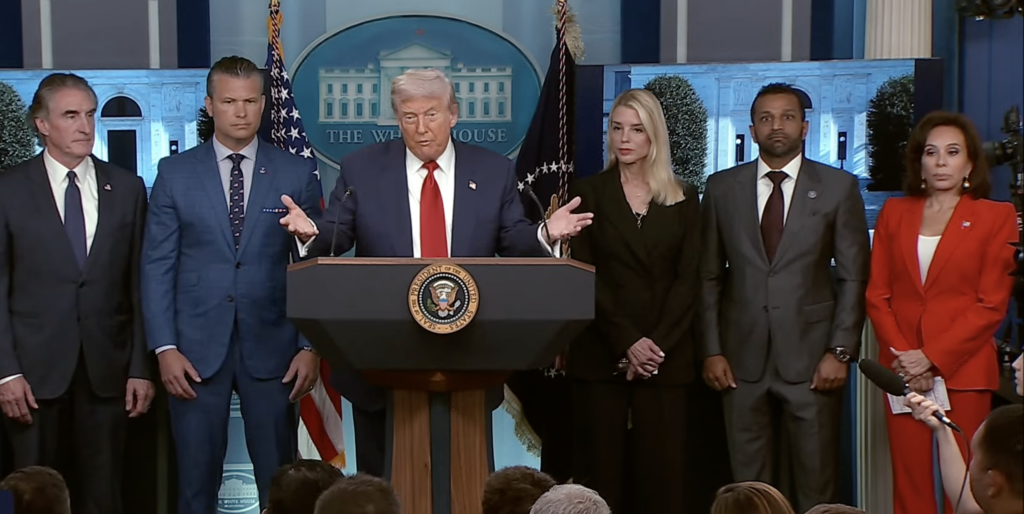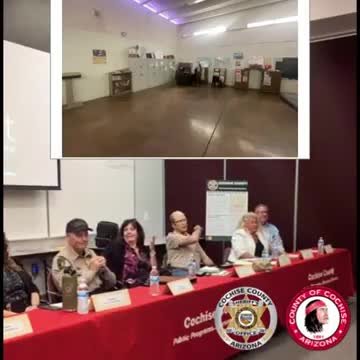Trump Declares “Crime Emergency” in Washington, DC
During a press conference on August 11, 2025, President Donald Trump declared a “crime emergency” in Washington, D.C., mobilizing 800 National Guard troops to the capital. He addressed the public while flanked by various officials, emphasizing the urgent need for control over rising crime rates.
Despite the declaration, it’s worth noting that violent crime in D.C. has recently reached a 30-year low. Trump, however, appeared undeterred, suggesting his approach may be extended to other cities governed by Democrats that he views as suffering from significant crime issues.
“We’re starting very strongly from DC,” he stated, implying that actions taken here may set a precedent for other locations. The federal takeover of the local police department—one that comprises around 3,400 officers—utilizes existing laws that allow for federal intervention.
District Mayor Muriel Bowser criticized Trump’s move as “uneasy and unprecedented,” noting she had not been given prior notice regarding the takeover of local police. This decision was prompted, at least in part, by recent incidents involving violent crime, including an attempted carjacking by teenagers in the Logan Circle area.
Trump was adamant that he could deploy additional National Guard units if necessary, drawing a parallel to his tough immigration policies at the southern border. Defense Secretary Pete Hegses stated that National Guard troops would be arriving in the district within the week.
Local officials expressed their opposition to Trump’s actions. D.C. Attorney General Brian Schwarb described the president’s decision as “unprecedented, unnecessary, and illegal,” highlighting that crime rates had significantly declined recently.
In another controversial statement, Trump mentioned plans to dismantle camps for homeless individuals but did not clarify where they would be relocated. Over the weekend, many federal law enforcement officials were deployed throughout the city as part of this crackdown.
Response to Democratic Cities
This federal action follows Trump’s earlier attempt to exercise control over the California State Guard, previously under the authority of Governor Gavin Newsom, to address protests against immigration policies. Trump criticized several major Democratic cities, like Baltimore and New York City, for their crime rates, suggesting they might take cues from D.C.’s new measures.
“Maybe they’ll clean up themselves,” he remarked, referencing issues like cashless bail that he believes contribute to urban crime problems. He placed specific blame on leaders like Chicago’s Mayor Brandon Johnson and Illinois Governor J.B. Pritzker.
Some Republican leaders praised Trump’s actions as essential for restoring order. Representative James Comer lauded the National Guard deployment as a necessary step to combat rising crime rates.
Historically, Trump’s administration has faced scrutiny for its police actions, particularly during protests surrounding the death of George Floyd in 2020, and he has previously hesitated to deploy the National Guard during chaotic events like the January 6 Capitol incident.
Trump and Putin Meeting
After the announcement, Trump spoke about his upcoming meeting with Russian President Vladimir Putin, hoping it would advance peace efforts regarding Ukraine. He described the summit as a significant encounter and planned to communicate its outcomes to Ukrainian President Volodymyr Zelensky.
When asked about Zelensky’s participation, Trump stated he would not be included and emphasized that resolutions would need to come from discussions between Putin and Zelensky. Despite some disappointment expressed by Trump regarding Zelensky’s refusal to cede territory to Russia, the Ukrainian leader remains adamant about maintaining sovereignty.
“The Ukrainians don’t give their land to the occupiers,” Zelensky asserted, highlighting the ongoing complexity of the situation.







